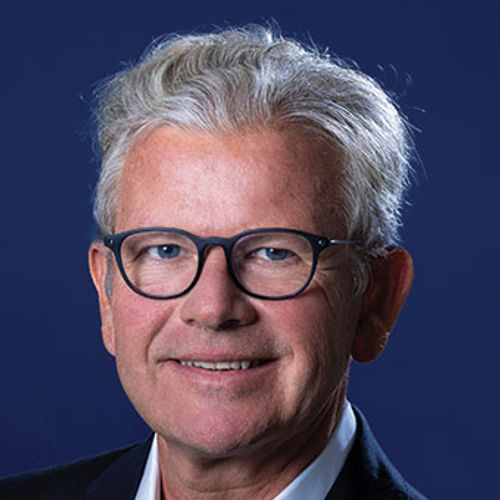Star Alliance, Oneworld and SkyTeam -- the three global airline alliances -- are once again leaning into technology integrations for facilitating smooth, multi-airline journeys.
Take, for example, Oneworld CEO Nat Pieper's comments during an interview last month: "We want a Oneworld multicarrier ticket to be as simple to orchestrate from a guest perspective as if they were flying the same itinerary on one carrier," he said. "It should be all facets of the journey, from the time you search that itinerary to check-in."
He added: "Ultimately, as I get off the airplane, if I've got an issue with my bag and I'm on a British Airways-operated flight but I want to use the American Airlines app -- we want you to be able to use whatever app you want to."
Ambitions such as these aren't new for the alliances. But as the three have reached something close to global coverage, facilitating seamless, multicarrier journeys has become a priority.
And with air carriers around the globe now better positioned to dedicate resources to these integrations than they have been since pre-Covid times, the alliances are starting to achieve significant milestones.

Patrick Roux
SkyTeam, which counts Delta, Air France, KLM and Korean among its 19 members, now facilitates seamless multi-airline itinerary check-in on 95% of the group's global volume, said CEO Patrick Roux. For example, a flyer whose one-way itinerary includes flights on Delta and Korean can check in for both flights via either carrier's app.
"It's becoming a completed project. We're almost there," Roux said. "The ambition is to have all the touch points of the customer journey in place and to be the first one to provide it."
Meanwhile, Star Alliance, which counts United, Lufthansa, Turkish and Singapore among its 26 members, has enabled cross-airline free seat selection on 83% of connecting bookings, said Luc Lachoix, Star's vice president of digital and technology. Star's goal is to bring that number to 90% by the end of the year.

Luc Lachoix
The alliance also projects it will facilitate multi-airline bag tracking on 60% of Star itineraries this year.
Oneworld, which includes American, Alaska, British Airways and Qatar Airways among its members, lags behind its competitors. Currently, only American and Alaska offer common check-in, and only for domestic itineraries. But onboarding will soon ramp up, Pieper said. The alliance, which will soon grow to 15 airlines with the addition of Fiji Airways and Oman Air, has set a goal of having 50% of its airlines linked into its common platform by early next year.
American, which represents 40% of Oneworld in terms of capacity, has committed to taking a leadership position in driving the alliance's common tech adoption, a move that should drive funding commitments from smaller members, Pieper said.
At the heart of each alliance's technology efforts are platforms that serve as central plug-in points for members, freeing airlines from what otherwise would be the painstaking process of doing a series of bilateral integrations.
SkyTeam and Star took the lead on these central integrations in the few years before the pandemic put the brakes on progress.
In a 2019 interview, for example, then-SkyTeam CEO Kristin Colville said the alliance was targeting the end of 2020 to have all its members linked into a cross-airline baggage-tracking solution.
The alliance is now targeting the end of this year to complete that integration, Roux said.
After the Covid pause, SkyTeam had to work backward, updating technology that had become dated, he added.
Another challenge for integrations is securing funding commitments from member carriers, which have to make choices on how to allocate finite IT resources between internal systems and alliance-wide ones.
Along with integrated check-in, bag tracking and seat selection, the alliances are moving toward other cross-airline facilitations. Roux said that a few SkyTeam airlines have begun connecting real-time flight information into its central technology hub, called SkyLink Digital Spine, a service that can help connecting flyers. Seat assignments and cross-selling ancillary products will be SkyTeam's next step.
Star is steadily expanding its Connection Centres program, which began at Chicago O'Hare in 2017 and now includes eight airports in North America and Europe. It combines technology with ground agents to identify and assist multiairline customers who are at risk of missing a connecting flight.
Seamlessness in loyalty accrual, redemption and recognition have also been a focus of tech efforts at Star and SkyTeam.
Star, for example, has developed capabilities to enable the immediate crediting of points to an individual's airline loyalty account when those points are accrued by flying on a different Star member, Lachoix said. Similarly, the alliance gathers information about members' redemption availability, making it easier for, say, one airline to show a user award-redemption info for a flight on another airline.

Theo Panagiotoulias
Still on the ultimate priority list for all the alliances is seamless cross-airline servicing during disruptions. Such functionality, for example, could include the ability to rebook a flight on the operating airline from whichever alliance-member app a customer prefers.
Build-outs, though, will likely take years.
"If you think about the customer journey, there's so many touchpoints along the way, and you want to try and make it as seamless as possible," Star Alliance CEO Theo Panagiotoulias said. "That's the aspiration. But there's a lot to do."